Introduction
when it comes to getting your message across to other people you have three choices to make in the way you communicate. Passive versus Assertive versus Aggressive, and only one of those options will ensure that your needs are met while also being respectful of other people it's not passive communication because all that does is let other people walk all over you, and there's a huge difference between assertiveness versus aggressiveness.
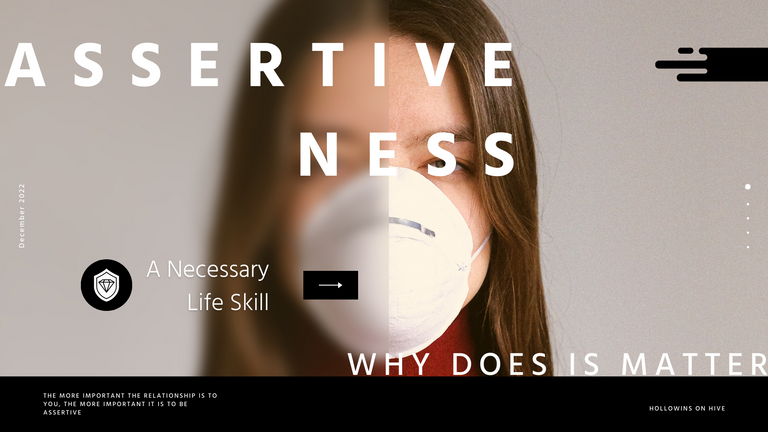
Because being aggressive will usually make people want less and less to do with you whereas learning how to be assertive will help you achieve what you need and want while also being a decent human being.
Assertiveness spectrum’s view
So, let's talk about assertiveness and mental health. I'm sure you've had plenty of dealings with aggressive and dominant people in your life. you know, the ones who like to stomp and shout until they get their way like overgrown toddlers and on the other end of the spectrum.
I'm sure you've experienced passive people as well, who often don't speak up or who may be uncomfortable with saying what they need and want. The challenge with both of those styles is that they aren't really balanced. One person usually “loses” out and that's not really a great outcome for healthy relationships.
Enter assertiveness
Assertiveness is all about finding balance by behaving confidently an kindly when communicating your needs, wants, feelings, beliefs, opinions. and doing so in an open honest and respectful way.
Building assertiveness skills is actually one of the biggest mental health tips I give because when you figure out how to be more assertive, you can improve the quality of your relationships with others both at home and at work.
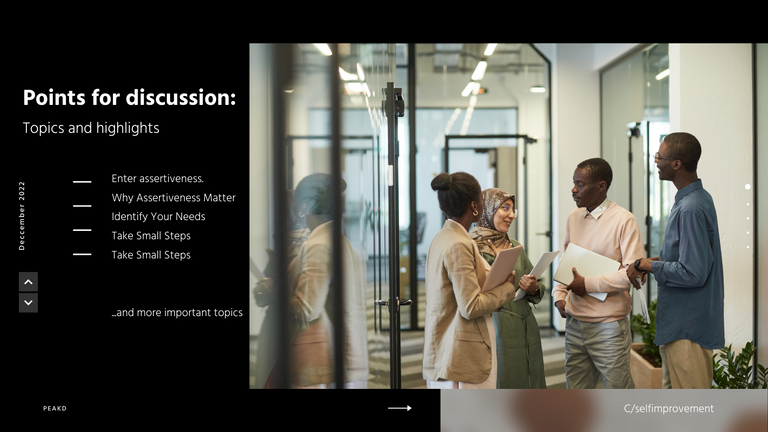
Learning assertive communication skills helps your mental health because it's about treating yourself with respect. it's a form of self-care in that it involves being very clear about what you need and why; and then confidently communicating your needs and feelings to others in a fair and balanced way.
Why Assertiveness Matter
So, let's talk about why assertiveness matters ? and it matters because if you don't ask you don't get, and beyond that it's also about how you ask for what you need and want in life.
if you're meek and mild then some people may take advantage of you, or if you're pushy, dominant, and demanding. then you'll find that a lot of people just don't want to deal with that type of energy. You'll wind up pissing people off and pushing them away and that's not a great way to live.
Assertiveness is that balance that I talked about earlier. it's the middle ground, and it's a way to meet your needs while also being respectful of others. Building greater assertiveness can improve your self-esteem and confidence and it helps you to get on better with other people.
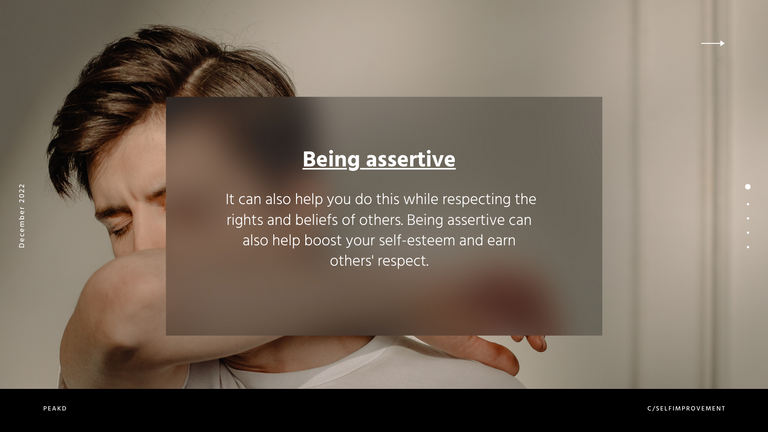
So assertiveness involves understanding that you may not be able to control other people but you can certainly influence how they behave towards you by addressing issues in a firm but fair way. if and when they occur.
Identify Your Needs
So, how do you do that?
Well, I have four tips to be more assertive starting with figure out what you need and want. Before you take any action or have any conversations. First, spend a little bit of time with yourself thinking about the situation or relationship and consider your needs and wants. Now bear in mind what I said earlier about assertiveness involving balance. So, that doesn't necessarily mean that just because you want or need something that you must get it at all costs.
The assertive approach is to identify your needs, state them clearly, and then be prepared to find a middle ground. So, you may need to compromise a little. This whole needs and wants exercise is about helping you to be clear on what you might be able to be flexible with versus what is an absolute non-negotiable for you.
Next, Practice.
Have you ever had the experience of saying something out loud for the first time and it just feels really weird and uncomfortable ?. That's because it is. The first few times that you say or do something new it's probably going to feel really awkward.
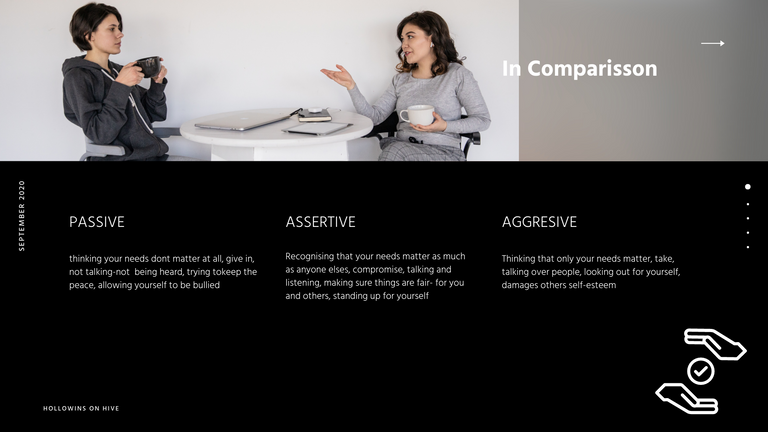
Why do you think people rehearse plays before they perform them ?. So, then why would you go into an important discussion with someone worrying about things being all weird and awkward ?. So, grab a friend or family member who's positive and supportive and ask them if you can do a little bit of practice with them.
So, then work through what you want to say a few times so that it feels more natural, and if you happen to work with a therapist or a coach. You can do the same thing. It's going to help you feel a lot calmer and much more comfortable when you come to the actual conversation.
So, that leads to my next point.
Manage Your Emotions
Whitney Houston may have gotten so emotional and emotions are actually a good thing because they help us to identify how we really think about our situation. But if you let your emotions do all of the talking rather than having a balance between emotions and logic. You'll usually wind up creating a big old mess that you need to clean up afterwards.
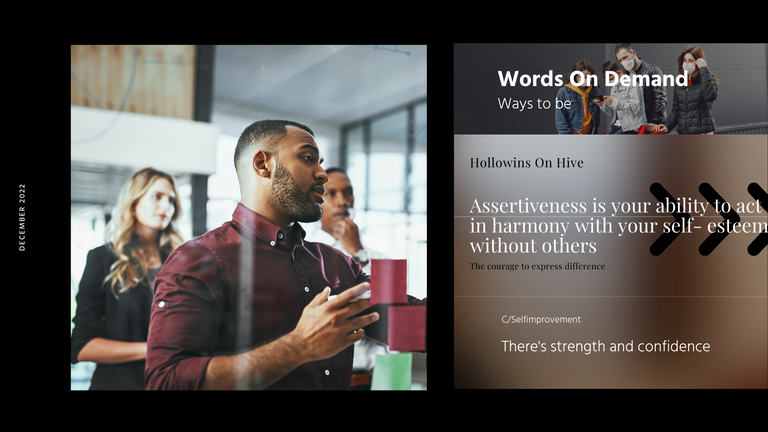
So, often our emotions just get in the way when. We're trying to work things out and so you need to manage them thoughtfully. Here's what i find helpful when you feel your emotional reaction kicking off.
Pause, close your eyes. if it's safe to do so. I mean, don't do it if you're driving or walking down the street. But if you can close your eyes and then gently breathe in and out as you slowly count to ten. When you feel calmer, open your eyes and ask yourself what you're really feeling?, and why you're feeling that way?.
So, then you can start to think about things a lot more logically instead of just emotionally. You can slowly begin to figure out how you can take a rational approach to the situation rather than just having an emotional outburst and being like a bull in a china shop. It's a really simple step that can make a huge difference.
And it leads to my next tip.
Take Small Steps
If you're playing a video game, do you go straight to take on the final boss ?. No, you work your way up level by level, and it's the same with assertiveness. Try smaller conversations that feel less high stakes and then work your way up to the tougher ones over time. The more you do that, the more confident you'll feel over time.
So, a big thing, is that you can be assertive and still be kind? in fact I think that assertiveness is kindness and here's why?.
it's about stating what you want or need in a clear calm and considerate way, and so what could be kinder than that ? if you're passive then you're not speaking the truth and that can lead to resentment later and if you're aggressive then you'll just come off as mean and nasty which will push people away.
I tend to focus on the middle grounds in things as much as possible and that's what assertiveness is. it's the calm and rational approach that focuses on doing no harm to others and doing no harm to yourself.
Images & Elements are free provided by canva ; Designed by Hollowins
I think I have both aggressive and passive means of communication. I use them when situations arises. I guess I have to learn the assertive mode so I can build confidence, self-esteem, respect, and be able to communicate my needs without being too pushy or making people lose interest in me. Thanks for sharing.
Yes it is, people tend to trample on people they feel is timid and not outspoken, so assertiveness is indeed a great mental health tip. My emotions turn to turn haywire if we don't control it, thank you for the tips, so helpful